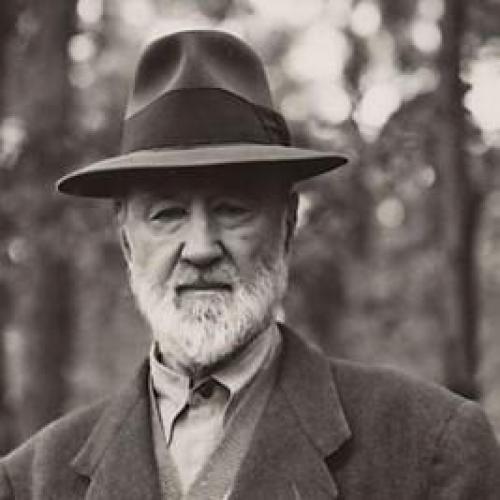Charles Ives - Tarrant Moss
That now is false to me
And I slew the Reiver of Tarrant Moss
And set Dumeny free
They have gone down, they have gone down
They are standing all arow--
Twenty knights in the peat-water
That never struck a blow!
Their armour shall not dull nor rust
Their flesh shall not decay
For Tarrant Moss holds them in trust
Until the Judgment Day
Their soul went from them in their youth
Ah God, that mine had gone
Whenas I leaned on my love's truth
And not on my sword alone!
Whenas I leaned on lad's belief
And not on my naked blade--
And I slew a thief, and an honest thief
For the sake of a worthless maid
They have laid the Reiver low in his place
They have set me up on high
But the twenty knights in the peat-water
Are luckier than I!
And ever they give me gold and praise
And ever I mourn my loss--
For I struck the blow for my false love's sake
And not for the Men of the: Moss!
Song Description:
edit soundcloudSoundCloud:
edit soundcloudMore Charles Ives lyrics
Charles Ives - Canon
Oh, the days are gone, when beauty bright My heart's chain wove; When my dream of life, from morn till night Was love, still love New hope may bloom And days may come
Charles Ives - Waltz
Round and round the old dance ground Went the whirling throng Moved with wine and song; Little Annie Rooney (now Mrs. Mooney,) Was as gay as birds in May S'her
Charles Ives - Two Little Flowers
On sunny days in our backyard Two little flowers are seen One dressed, at times, in brightest pink And one in green The marigold is radiant The rose passing fair; The
Charles Ives - The White Gulls
The white gulls dip and wheel Over waters gray like steel The white gulls call and cry As they spread their wings and fly The white gulls sink to rest On the tides slow
Charles Ives - A Christmas Carol
Little star of Bethlehem! Do we see Thee now? Do we see Thee shining O'er the tall trees? Little Child of Bethlehem! Do we hear thee in our hearts? Hear the Angels
Charles Ives - Memories
(Very Pleasant) We're sitting in the opera house; We're waiting for the curtain to arise With wonders for our eyes; We're feeling pretty gay And well we may
Charles Ives - Forward Into Light
Forward flock of Jesus Salt of all the earth Till each yearning purpose Springs to glorious birth; Sick they ask for healing Blind they grope, they grope for day; Pour
Charles Ives - Naughty That Country Needeth
Naught that country needeth of these aisles of stone; Where the Godhead dwelleth, temple there is none All saints that in these courts have stood Are but babes and feeding on childrens
Charles Ives - The South Wind
When gently blows the South Wind First through the Northern Wood With eagerness he goeth Where long a tree has stood He lifts the leafy cov'ring That lies close at
Charles Ives - Allegro
By morning's brightest beams My heart lightest seems For in my waking thoughts gay hopes do shine; Before me lies the day And ere it dies away Who knows what may be
YouTube
Charles Ives
